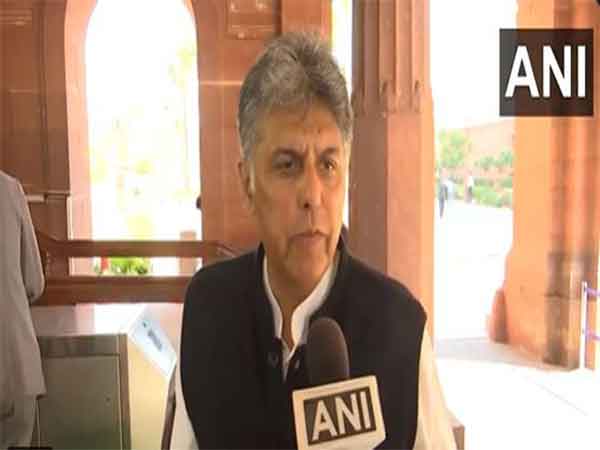
Almost two years to the day after legendary drag queen Heklina was found dead , her close friend and fellow queen Peaches Christ still feels traumatized by her death and the lack of answers provided by the London Metropolitan Police Department, who she has accused of “homophobic bias.” Peaches Christ , also known as Joshua Grannell, was the one who found Heklina’s body in a flat the two were sharing together as they prepared for a two-week run of the musical parody “Mommie Queerest” at the Soho Theatre. While finding her friend dead has left Peaches with emotional scars — for which she is still in therapy working to heal — it's the lack of real answers that continues to haunt her, Peaches Christ tells PRIDE.
“There’s the trauma of finding her, which was — it was like a horror movie and I’ll spare you specific details, but it was horrific,” she says. “It was bad and then not to be listened to or to be communicated with by the people who are supposed to be giving you answers, who assured you that they would keep you in the loop and communicate with you. It just felt so retraumatizing and created a whole other layer of nightmare to the situation.

” Heklina, born Stefan Grygelko, was a beloved drag star in San Francisco whose punk aesthetic influenced a generation of drag queens. She was also the co-founder of the “Trannyshack” drag night at the iconic Stud bar in 1996 and helped transform Oasis into a drag and cabaret club. After years of working to keep Heklina’s name in the headlines in the hopes of pressuring the police into action, investigators have finally released new information in the case, but Peaches Christ says she still doesn’t have an official cause of death.
She was beginning to lose hope that there would ever be progress made in the case — it took the police 21 months to release CCTV footage of three unnamed men leaving Heklina’s apartment building on the night of her death — until a new team of five investigators traveled from London to San Francisco to get more statements. On March 17, London authorities visited Peaches Christ and dropped a bombshell about her friend’s death. She was told that Heklina had a “lethal combination of drugs in her system” when she died, but the police still refused to confirm her cause of death.
The authorities reinterviewed Peaches Christ and asked for her cooperation in locating people Heklina had slept with and done drugs with who might have information that could help in their investigation. They also traveled to visit Heklina’s next of kin and executor of her estate, Nancy French, to speak with her and retrieve Heklina’s iPhone, which Peaches Christ alleges the police had in their possession two years ago, but never unlocked despite being told that Heklina had been setting up dates Grindr shortly before her death. “Heklina had no shame about her casual sex life, it’s something she talked about on stage,” she says.
"I knew what was going on, it’s why I went and stayed at a hotel [on the day of her death]. I didn’t want to be there while my friend was hooking up.” Just a few days after the London police came to California, Peaches Christ, still determined to get more answers, was in London leading a protest against the police’s alleged “homophobic bias” in Heklina’s case.
“The idea of the protest was to call attention to the case of Heklina, but just as important was to create change, institutional change, so that this sort of homophobic bias wasn’t brought to other cases in the future,” she says. Peaches Christ has been told that drugs were found in Heklina’s system and that there was “no foul play,” but the fact that investigators have picked up the case again and feel strongly enough about it to fly to the U.S.
leads her to believe there is more to the story. “If she had a lethal combination of drugs in her system like they say she did,” she wonders aloud, “then why not just wrap it up? Like why didn’t we wrap it up immediately? You would have known that before you cremated her in 2023. So why, if that’s how she died? What's going on? Why is there no death certificate?” www.
instagram.com Peaches Christ felt from the very beginning that Heklina being part of the LGBTQ+ community and a drag queen meant that her case was never taken seriously. It took “10 months of unanswered emails and phones calls” before an anonymous source from inside the Westminster morgue told her that there “was a coverup taking place” and that there was still disagreement over Heklina’s cause of death.
Stranger still, Peaches Christ alleges that in a Zoom meeting, investigators told her and French that the police officer first assigned to the case had a “conscious or unconscious negative bias.” “So that was the point where I was like, 'Oh wow, they’re saying it’s homophobia,'” she says. While in London for the protest to demand more action in Heklina’s case, where fellow drag queens and activists marched holding signs reading, “We Deserve Justice, Not Discrimination,” “Queer Safety Over Police Power,” and “End Met Police Homophobia Now,” the police asked Peaches Christ to provide a new DNA sample (she previously provided one to rule her out of samples they collected from the scene) because the old one had “expired.
” Combine that with the fact that the CCTV footage was only released after the press contacted them, and she says it started to look like negligence on the part of the Metropolitan Police. “So all of this stuff is just really angering me because it does feel intentional. It’s either extremely sloppy or just truly intentional negligence,” Peaches Christ says, explaining that she thinks the police only started to act once they found out she is well known in the drag world.
“I think before they just thought I was just some trashy drag queen, who just should go away and leave them alone. And it probably was a mixture of homophobia and probably the fact that we’re not there, we don’t live there, we’re all the way in California,” she says. Two years ago Peaches Christ would have settled for just being provided with a cause of death, but now she wants The Met to be overhauled and homophobic bias to be weeded out so that no other loved ones have to go through what she has.
She explained that in her experience, being LGBTQ+, using drugs, and having casual sex means that the cops will treat your case like it doesn’t matter. “My hope is that maybe we can move the dial and change their viewpoint on us institutionally so that they see us as human beings and treat us like people in the future,” Peaches Christ says. “My really big hope is that the terrible, terrible service that Heklina has received from these folks— by us blowing it up and getting angry — maybe it’ll change the next time they get a case like this.
”.











